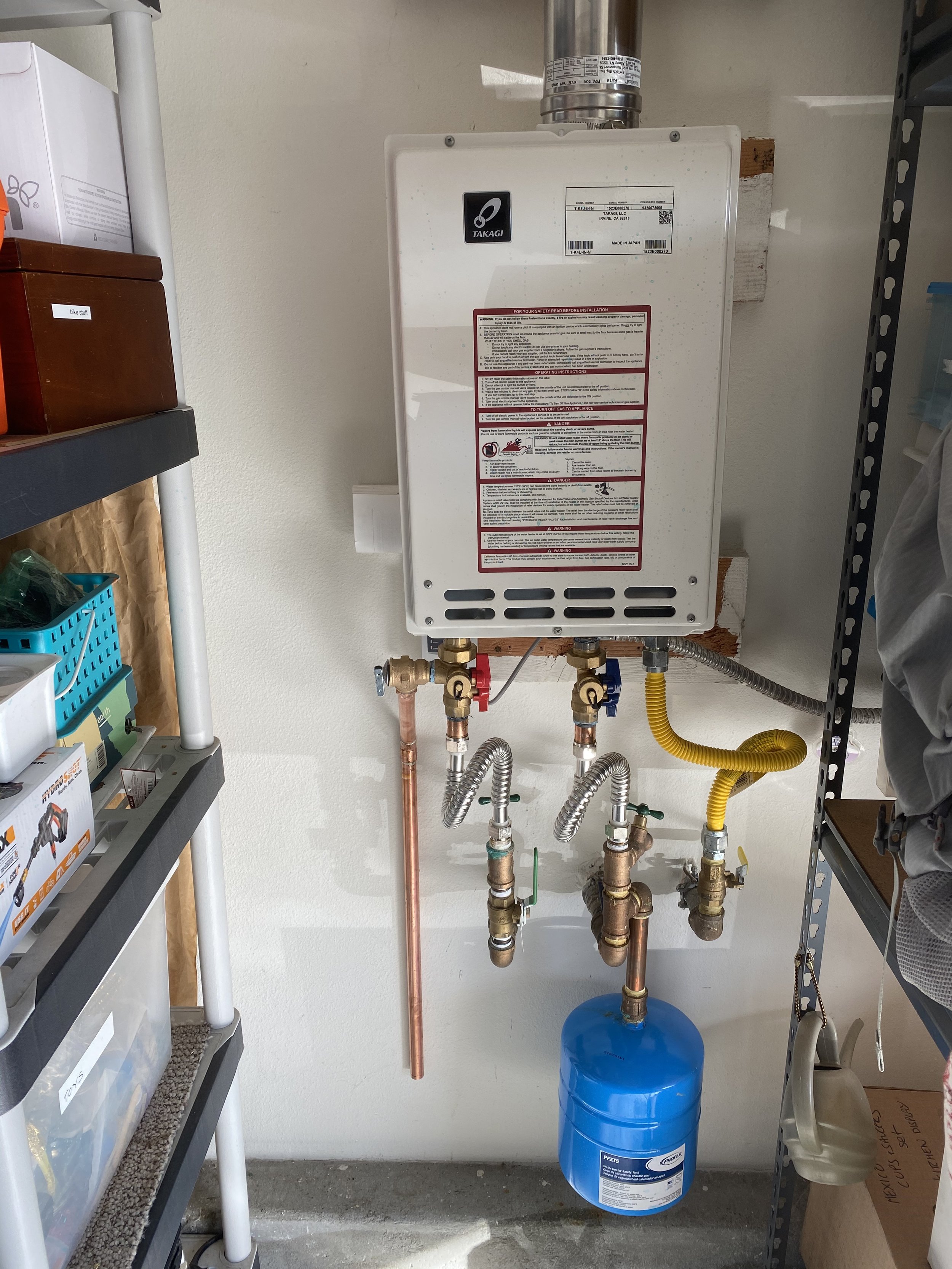Choosing the Right Water Heater for Your Home: A Comprehensive Guide
Selecting the right water heater for your home is crucial for ensuring efficient, reliable hot water for your daily needs. With various types of water heaters available on the market, each with its own set of features and benefits, it can be challenging to decide which one is best for your household. This guide will help you understand the different types of water heaters, their pros and cons, and how to choose the perfect one for your home.
Types of Water Heaters
1. Tank Water Heaters
How They Work
Tank water heaters, also known as storage water heaters, are the most common type. They consist of an insulated tank where water is heated and stored until needed. When you turn on a hot water tap, hot water is drawn from the top of the tank, and cold water enters the bottom to be heated.
Pros
Lower Initial Cost: Tank water heaters are generally less expensive to purchase and install.
Simple Installation: They are easier and quicker to install compared to other types.
Variety of Sizes: Available in various sizes, making it easy to find one that fits your household needs.
Cons
Energy Loss: Standby heat loss occurs as the heater keeps the water hot even when not in use, leading to higher energy bills.
Limited Supply: Hot water can run out if the demand exceeds the tank’s capacity.
2. Tankless Water Heaters
How They Work
Tankless water heaters, also known as on-demand water heaters, heat water directly without using a storage tank. When you turn on the hot water tap, cold water travels through a pipe into the unit, where it is heated by gas or electric elements.
Pros
Energy Efficiency: No standby heat loss, resulting in lower energy bills.
Unlimited Hot Water: Provides a continuous supply of hot water, ideal for larger households.
Space Saving: Compact design takes up less space compared to tank water heaters.
Cons
Higher Initial Cost: More expensive to purchase and install.
Flow Rate Limitations: May struggle to provide hot water for simultaneous, multiple uses.
3. Heat Pump Water Heaters
How They Work
Heat pump water heaters, also known as hybrid water heaters, use electricity to move heat from the air or ground to heat the water, rather than generating heat directly.
Pros
High Efficiency: Uses less electricity compared to conventional electric water heaters.
Environmental Impact: Lower carbon footprint due to reduced energy consumption.
Cons
Higher Initial Cost: More expensive upfront and requires professional installation.
Space Requirements: Needs more space due to the unit’s size and proper ventilation.
4. Solar Water Heaters
How They Work
Solar water heaters use energy from the sun to heat water. They consist of solar collectors and a storage tank. The collectors, usually mounted on the roof, absorb solar energy and transfer it to the water.
Pros
Energy Savings: Significantly reduces energy bills, especially in sunny climates.
Environmental Benefits: Renewable energy source reduces carbon footprint.
Cons
Weather Dependent: Effectiveness can be reduced in cloudy or rainy weather.
Higher Initial Cost: Installation and equipment costs can be substantial.
5. Condensing Water Heaters
How They Work
Condensing water heaters are designed for homes that use natural gas. They operate similarly to conventional tank water heaters but with a secondary heat exchanger that captures and utilizes hot exhaust gases that would otherwise be wasted.
Pros
High Efficiency: More efficient than traditional gas water heaters.
Energy Savings: Lower operating costs due to improved energy efficiency.
Cons
Higher Initial Cost: More expensive to purchase and install compared to standard tank water heaters.
Complex Installation: Requires professional installation and proper venting.
Factors to Consider When Choosing a Water Heater
1. Household Size and Water Usage
The size of your household and your daily water usage play a significant role in determining the type and size of water heater you need. Larger families with higher hot water demands may benefit from a tankless or hybrid water heater, while smaller households might find a tank water heater sufficient.
2. Energy Efficiency
Energy efficiency is crucial for reducing utility bills and minimizing your environmental impact. Look for water heaters with the Energy Star label and compare the Energy Factor (EF) ratings. Tankless, heat pump, and solar water heaters are generally more energy-efficient options.
3. Fuel Type
Water heaters can be powered by electricity, natural gas, propane, or solar energy. Consider the availability and cost of these fuel sources in your area. Natural gas and propane heaters are often more cost-effective to operate than electric models, while solar heaters offer the most savings in the long term.
4. Initial Cost vs. Operating Cost
While tankless and hybrid water heaters have higher initial costs, they offer significant savings on operating costs over time. Calculate the total cost of ownership, including installation, maintenance, and energy costs, to make an informed decision.
5. Space and Installation Requirements
Consider the available space in your home for the water heater. Tankless and condensing water heaters save space but may require modifications to existing plumbing and venting systems. Traditional tank heaters need ample space for the tank, while heat pump and solar heaters may require additional room for equipment and ventilation.
6. Maintenance and Longevity
Different types of water heaters have varying maintenance needs and lifespans. Tank water heaters typically last 10-15 years, while tankless models can last up to 20 years with proper maintenance. Regular maintenance, such as flushing the tank and inspecting components, can extend the life of your water heater and ensure efficient operation.
Conclusion
Choosing the right water heater for your home involves evaluating your household’s hot water needs, energy efficiency goals, and budget. By understanding the pros and cons of each type of water heater and considering factors like fuel type, initial cost, and space requirements, you can make an informed decision that ensures reliable, efficient hot water for years to come. Whether you opt for a traditional tank water heater, a space-saving tankless model, an energy-efficient heat pump, a sustainable solar system, or a high-efficiency condensing unit, the right water heater can enhance your home’s comfort and reduce your energy bills.


